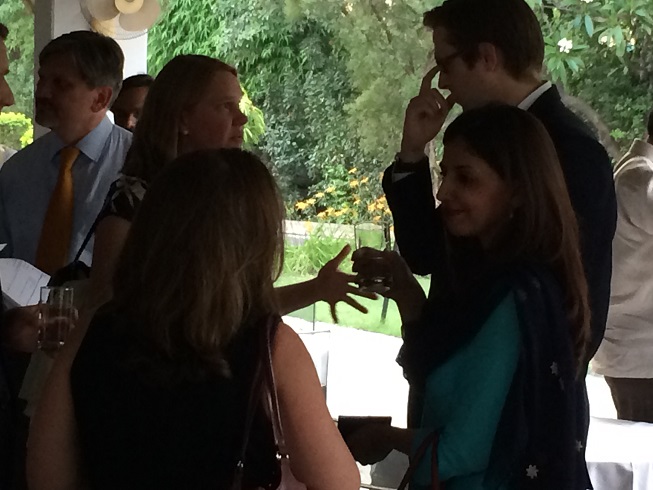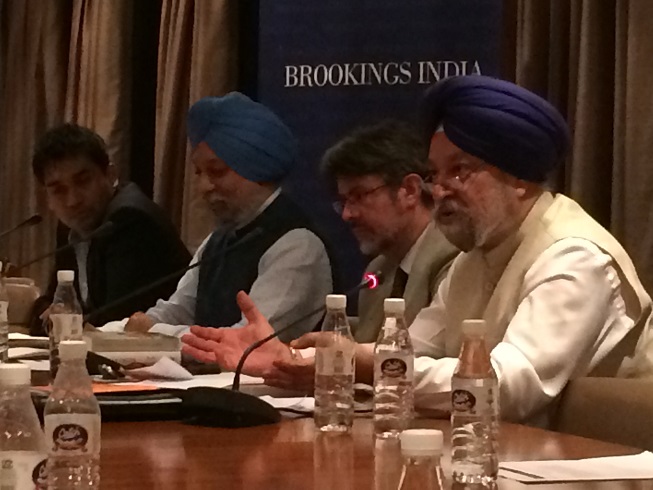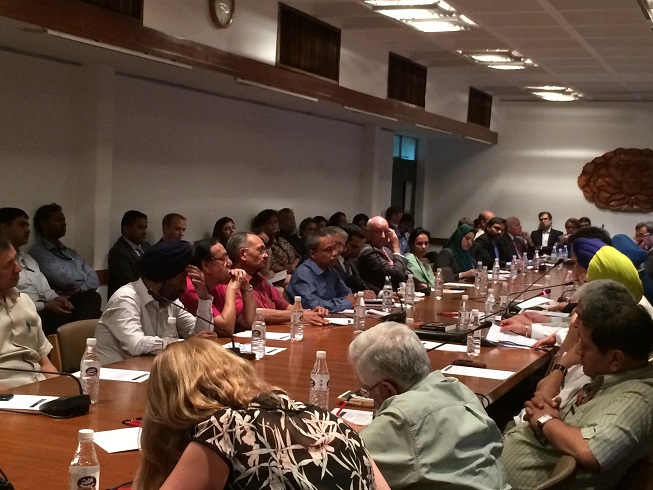

4:00 pm IST - 5:30 pm IST
Past Event
Content from the Brookings Institution India Center is now archived. After seven years of an impactful partnership, as of September 11, 2020, Brookings India is now the Centre for Social and Economic Progress, an independent public policy institution based in India.
While the foreign policy agenda has mostly been missing from the Indian national elections, the new government will be confronted with a series of international challenges that will have a direct bearing on its domestic policies and development agenda. These challenges range from ensuring energy supplies, climate change, sustainable development, international trade, maritime, space and cyber-security, non-proliferation, and cross-border terrorism. The way India addresses these challenges will also determine its global role. In addition, apart from India’s immediate neighborhood, relations with several regions, particularly the Middle East, Central Asia, Asia-Pacific and increasingly even Africa will have an impact on India’s well being. Finally a number of key bilateral relations, which had drifted or derailed, particularly with the US, China, and Pakistan, will have to be put back on track. What should the foreign policy priorities of the new government be? How will these priorities, particularly towards enhancing trade and access to technology, be implemented?
To address these questions, Brookings India held a discussion featuring Ambassador Hardeep Puri, Former Permanent Representative of India to the UN in New York and Geneva (see his remarks here), Professor Anatol Lieven, Department of War Studies, King’s College London and author of Pakistan: A Hard Country and Dr. Rudra Chaudhuri, Senior Lecturer, Department of War Studies, King’s College London and author of Forged in Crisis: India and the United States since 1947, along with a group of eminent academics, diplomats and foreign policy practitioners.
The deliberations focused on four priorities for the new government:
1) Repairing relations in the immediate neighborhood
The first priority of the next government would be to urgently repair relationships in the immediate neighborhood. The panel noted that bilateral relationships, particularly with Afghanistan, Bangladesh, Sri Lanka and Maldives are in a state of disorganized mismanagement and need to be addressed with “cooperation, maturity, and wisdom”.
On Pakistan while there was consensus that very little progress was likely on Kashmir, there were better prospects for improved economic relations, given the Nawaz Sharif government’s desire to enhance trade and also import electricity from India. Even the Pakistan army was supportive of this agenda though they worried about being reduced to a conduit. Indian subsidies were also likely to be an issue in improving trade relations.
It was argued that while the Pakistan army might not move against terrorist outfits like Jaish-e-Mohammad and Lashkar-e-Taiba they were likely to work prevent terrorist attacks for four reasons: first, cross-border terrorism has not worked; second, any new cross-border terrorist attack was likely to evoke a strong US retaliation; third, there was also likely to be pressure from China; finally, Pakistan cannot afford to take on a serious military threat from India given that nearly 60,000 of its troops are deployed in Waziristan.
2) Managing expectations within bilateral relationships (particularly with the US)
India’s relationship with the US was pegged as ‘strategic’ in 2010 but ‘looks more transactional’ today. Moreover,there is very little convergence between the two on critical issues affecting India’s core security interests, particularly over Afghanistan, Bangladesh, Sri Lanka and Maldives. The Khobragade affair and the intellectual property protection issue have created further obstacles to developing the relationship positively. However, it was argued that blame for this state of affairs should be ‘equally apportioned on both sides’ and, consequently, ‘corrective action must equally be a joint effort’.
It was noted that historically the US and India have had a great deal of consistency without deep disagreements from either end. However, managing expectations is one of the deep problems with this relationship. In response to the UPA leaving behind a failed foreign policy platform, one panellist stated that actions of the UPA 1 transformed the relationship. There has been a “brick-by-brick, block-by-block” approach to developing the relationship between the two countries. The NSA, however, is a fairly new creation. A period of transition with a handover process is needed, during which it is necessary for crisis management to take place.
3) Developing a ‘game-changer’ relationship with China
If handled properly India’s relations with China could prove to be a game-changer. The ‘conspiracy of silence’ over the Henderson Brookes report, the stapled visas and the 17 round of border talks between the Special Representatives is counter-productive to developing an effective approach to current relations with China.
As two developing countires facing similar development challenges the cooperation between China and India in the multilateral arena has been ‘significant and productive’, even though their individual domestic approaches are not similar.
However, China’s more aggressive stance along the Line of Actual Control as well as in Tibet, where a joint exercise between Pakistan and China was reported, coupled with the growing trade deficit will have to be carefully managed. Presently India’s exports are at $17.3 billion, while China is exporting nearly $50 billion to India. While both countries have set a target of 100 billion bilateral trade in 2015, it was noted that this should not be at the expense of an even larger trade deficit for India.
4) Articulating India’s normative position more effectively
The panel noted that India’s positions on international norms like ‘responsibility to protect’ (R2P), needs to be more nuanced. For instance when it comes to the choice between absolute sovereignty or responsible sovereignty, India believes it to be the responsibility of the international community to play a role and intervene. The confusion, however, stems from pillar three of R2P – how exactly the concept should be enforced through military intervention by the international community. It is in this pillar that the nuance of India’s position must be taken into account. Indeed, the ability to communicate India’s unique position has been a consistent failure for the last 60 years.
The panel also noted that the various issues connected to India’s nuclear doctrine, strategy and posture need to be examined. The nuclear doctrine needs to be viewed in the context of the previous government’s failure at updating India’s nuclear doctrine and balance the country’s conventional ‘war-fighting potential with its nuclear weapons capability’. If nuclear weapons are to play their principal role as deterrents, there must be ‘reassurance that the deterrent is real’.
Conclusion:
The discussion also highlighted India’s growing interests in Africa, Central Asia and Asia-Pacific and participants argued that the new government could ill afford to ignore engagement with these areas. While the import of these regions was acknowledged it was felt that there was an imperative to prioritize in the short-term, particularly with the US, China and Pakistan where in some cases more was at stake and the ‘red lines are not always visible’.




Rahul Tongia, Anurag Sehgal, Puneet Kamboj
2020
Online Only
3:00 am - 4:40 am IST

Saneet Chakradeo
August 18, 2020